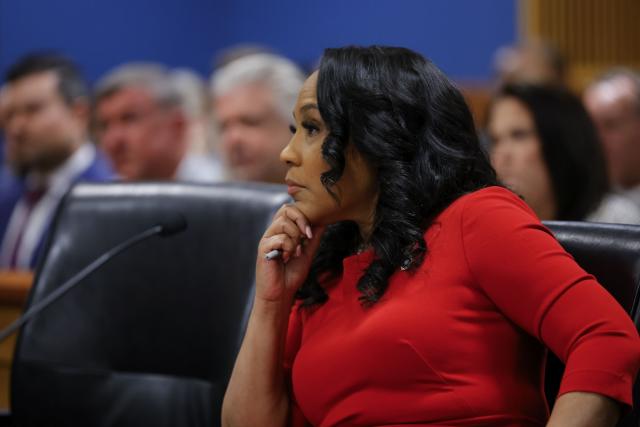Congressman calls for Defense Secretary Lloyd Austin’s resignation
In a significant political development, Congressman Pat Fallon (R-TX) has openly demanded the resignation of Defense Secretary Lloyd Austin following the controversy over his secretive recent hospitalization.
The scenario began with Fallon's appearance this week on The Faulkner Focus, in which he criticized Secretary Austin's handling of his recent hospitalization.
Fallon, expressing deep concern, likened the situation to a poorly scripted film, citing the lack of communication with the White House as a significant oversight. This incident has sparked a wave of scrutiny and debate over the transparency and accountability of high-ranking officials within the Department of Defense, as reported by FOX News.
Details of the hospitalization and its aftermath
The situation unfolded when it came to light that Secretary Austin had been hospitalized for an undisclosed illness.
Notably, even President Joe Biden was kept in the dark about this development.
This secretive approach to the hospitalization was further highlighted by a request made by an aide to Austin. The aide, during a 911 call, asked for discretion, urging the responding EMTs to avoid using sirens or lights while transporting Austin to Walter Reed National Military Medical Center.
Secretary Austin was admitted to the hospital on New Year's Day and remained there for a two-week period. Following his release, it was announced that he would be working from home for an unspecified duration, with assurances from the Pentagon that he would have full access to necessary secure communication channels.
Political repercussions and calls for resignation
Fallon, in his criticism, did not mince words.
He argued that Secretary Austin's actions, or lack thereof, amounted to a "grave error," questioning the accountability and transparency expected from someone in such a high office. Fallon stated:
This is like one of those bad B-movies with a lazy script. The secretary of defense tried to hide a serious illness and was disappeared for days, if not a week or so, and wouldn't even let the president of the United States know he's running the Department of Defense. It's supposed to be critical. So the [Armed Services Committee], we're looking into it. I think we're going to have hearings on it, which we should, because I think, quite frankly, he should resign.
The congressman also took the opportunity to also express his views on President Biden's fitness to serve, hinting at broader concerns over leadership and decision-making within the administration.
Response from the Pentagon and the public
In response to the unfolding events, the Pentagon released a statement confirming Secretary Austin's condition and his plan to perform duties remotely.
This statement aimed to reassure the public and other stakeholders of the continuity and stability within the Department of Defense during Austin's recuperation period.
However, the incident and the subsequent call for resignation have ignited a debate about the standards of transparency and accountability for public officials, especially those charged with national security responsibilities.
The fact that even President Biden was kept uninformed has raised eyebrows and questions about the internal protocols and communication channels within the administration.
The broader implications of the incident
This incident goes beyond the personal health of Secretary Austin. It touches on the vital issues of transparency, trust, and communication within the highest echelons of the United States government.
As the nation watches closely, the unfolding events will likely have a lasting impact on public perception and policy discourse related to the governance and oversight of national defense.
As the story continues to develop, all eyes are on the Pentagon, the White House, and Representative Fallon, with the nation awaiting further details and potential repercussions.
The call for Secretary Austin's resignation has undeniably set a significant political drama into motion, the resolution of which remains to be seen.
Conclusion
- Rep. Pat Fallon's call for the resignation of Defense Secretary Lloyd Austin following a secretive hospitalization.
- An aide's request for a discreet ambulance response, avoiding sirens or lights, during Austin's transport to the hospital.
- The broader implications for transparency and accountability in government, especially in matters of national security.






